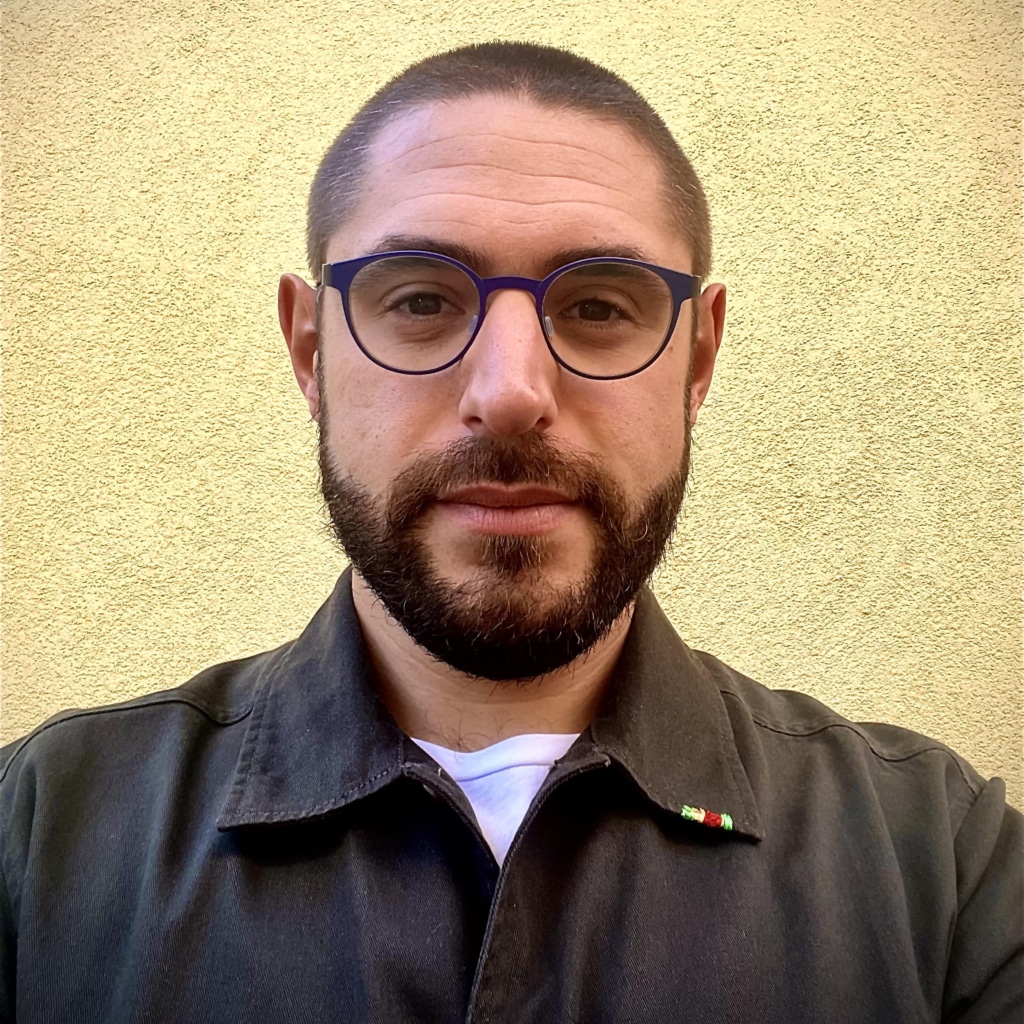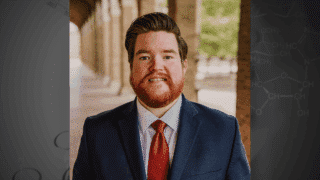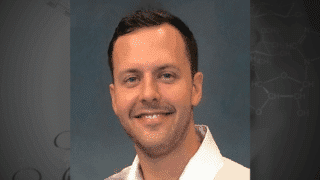 We are excited to feature Dr. Federico Ponzetto in our latest interview with PCC Fellows. Dr. Federico recently completed a successful PCC Fellowship, and he shares more about his background, his research, and his experiences as a PCC fellow in our interview below.
We are excited to feature Dr. Federico Ponzetto in our latest interview with PCC Fellows. Dr. Federico recently completed a successful PCC Fellowship, and he shares more about his background, his research, and his experiences as a PCC fellow in our interview below.
Background
Tell us about your educational background.
I am an analytical chemist with a B.Sc. in Chemistry and a M.Sc. in Clinical, Forensic and Sport Chemistry from the University of Turin, Italy. I had the opportunity to carry out my M.Sc. thesis project at the WADA-accredited Swiss Laboratory for Doping Analyses in Lausanne, and then I received a Ph.D. in Life Sciences from the University of Lausanne, Switzerland. My Ph.D. research project was performed at the WADA-accredited Swiss Laboratory for Doping Analyses in Lausanne.
What educational/professional opportunities helped you reach this point in your career?
During the second year of my M.Sc., I started asking my professors if it was possible to carry out my M.Sc. thesis project in a WADA-accredited laboratory. Thanks to my mentor Prof. Ezio Ghigo, I had the extraordinary opportunity to have an interview with Prof. Martial Saugy, who was the Director of the Swiss Laboratory for Doping Analysis, and he agreed to welcome me into one of the world’s leading WADA-accredited laboratories. I then moved from Turin to Lausanne and started my adventure in the anti-doping scientific community. During my Master’s degree, I became part of the liquid chromatography–mass spectrometry (LC-MS) group led by Dr. Raul Nicoli and, during my internship, I was fortunate to specialize in steroid analysis in blood matrix. That was and still is my main research area. Following this first experience in the anti-doping world, I was lucky to be in the right place at the right time. An opportunity arose for me to start my Ph.D. in Life Sciences at the University of Lausanne under the supervision of Prof. Martial Saugy.. Throughout the five years of my Ph.D., I was involved in the routine work of the Lausanne WADA-accredited laboratory, performed the analyses in the LC-MS sector, and became part of the Athlete Passport Management Unit with the role of scientific expert evaluating steroid profiles in the context of Athlete Biological Passport. Regarding my research activity, I worked on developing analytical methods for the quantification of circulating steroid hormones in blood matrix, with the aim of investigating their utility as markers of testosterone doping. Concomitantly, I also had a one-year internship at the School of Pharmaceutical Sciences of the University of Geneva in the research group on Biomedical and Metabolomics Analysis led by Prof. Serge Rudaz. All the knowledge gained during these experiences in high-level scientific environments has provided me with a strong background in analytical sciences and its application to doping control analysis, allowing me to undertake the anti-doping research career I’ve always dreamed about.
I have worked with outstanding colleagues and mentors, including Dr. Tiia Kuuranne, who became Director of the Swiss Laboratory for Doping Analyses and helped me build a solid analytical background as well as a valuable network in the anti-doping community. The excellent support from all of my colleagues and mentors, together with fruitful collaborations with anti-doping experts from other WADA-accredited laboratories, has provided me with not only scientific skills and knowledge, but also an incredible personal experience outside my country that I will forever remember as a turning point of my life.
Why did you choose to go into anti-doping research?
I’m one of the most passionate sports fans in the world, but unfortunately, although I’ve been a pretty good tennis player at the amateur level, I’ve never had the technical and physical skills to become a professional athlete. However, since I’ve always had a strong scientific mentality, after having obtained my B.Sc. in Chemistry, I decided that I would put all my efforts into entering the sports world through a different door. Therefore, I concluded my educational path with a B.Sc. in Sport Chemistry, already having in mind the goal of becoming an anti-doping scientist, capable of bringing significant advancements to doping control analyses with the aim of improving equity in sports competitions and protecting clean athletes.
Research
What do you find most interesting or exciting about your research area?
Anti-doping research is a paradigmatic example of how the scientific work performed in analytical laboratories could have a strong impact when applied in the real world. Indeed, the advances that were reached in the last ten years in terms of the detection of new prohibited substances, as well as the development of innovative analytical techniques and investigation approaches have completely revolutionized sports competition, guaranteeing a cleaner and fairer environment. In particular, the introduction of Athlete Biological Passport and its extension to steroid analysis (even in serum matrix) represents a remarkable tool for both prohibited substances abuse detection and deterrence. Last but not least, another exciting characteristic of this research area is the possibility of transferring the research outcomes to clinical contexts, spreading innovation and making further diagnostic tools available also to researchers studying public health issues.
What are your plans for your PCC-supported research, and what impact will your research have on furthering the field of anti-doping?
The main goals of my PCC Fellowship were to develop a novel analytical method to quantify all serum markers of doping with endogenous anabolic androgenic steroids (EAAS) reported in literature. I also investigated the application of this new analytical method to the investigation of possible confounding factors of the Blood Steroid Profile (BSP) that will soon be implemented in official doping control analyses. The postdoctoral research project has been carried out at the Department of Medical Sciences of the University of Turin, Italy, in strong collaboration with the Swiss Laboratory for Doping Analyses of Lausanne, Switzerland. The expected outcomes of this research will lead to a more comprehensive understanding of steroid metabolism, giving important information to anti-doping experts and endocrinologists who will be responsible for evaluating the BSP in the Athlete Passport Management Units around the world to differentiate physiological variations of monitored markers from prohibited substances abuse.
Goals and PCC Benefits
How has PCC funding helped enable your research success?
The PCC funding was fundamental during my Ph.D. for giving the Lausanne WADA-accredited laboratory the possibility of running the first steroidomics study in anti-doping research. Then, thanks to the PCC Fellowship grant, I was able to cover all the costs related to the clinical studies we performed and the experimental analyses that we conducted throughout the two-year postdoctoral research project. Nevertheless, having a guaranteed salary from the PCC Fellowship grant for this period helped me in starting a new chapter of my research career in an academic environment. Finally, the possibility of applying for PCC micro grants will be really beneficial for securing funding for further improvements and applications connected to the main research topic I focused on during the Fellowship.
What have you gained from your fellowship experience, and what do you hope to accomplish?
I’m now concluding my PCC Fellowship experience which has been a great opportunity and challenge that has prepared me for my next step in my career as a researcher. Although during the Fellowship we had to face the COVID-19 pandemic, thanks to the support of the PCC and the help of my colleagues and collaborators at the University of Turin, as well as in the broader anti-doping scientific community, I was able to accomplish all the goals that I had imagined when submitting my application to the PCC Fellowship Program. In 2023, the Blood Steroid Profile will finally become a reality, and the results obtained during this research project will represent a solid anchor point when evaluating Athlete Biological Passports, as well as a first step towards further innovation in this field of anti-doping research.
What are your long-term research or career goals?
Thanks to this experience, I’m now officially part of an academic research group, and I look forward to continuing my research on steroid analysis in this environment, with the mission of strengthening the connection between anti-doping and clinical endocrinology research. The focus of my future academic research will be on the development of a dedicated analytical platform for expanding our knowledge on steroid metabolism in biological matrices such as serum, saliva, and urine. My dream is to succeed in integrating such platforms in both clinical biochemistry and anti-doping laboratories, creating innovative tools for characterizing the physiological, pathological, and doping-related status of steroid compounds.



